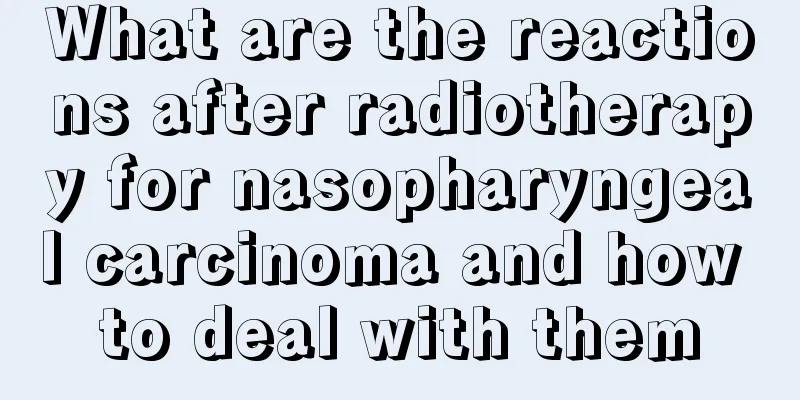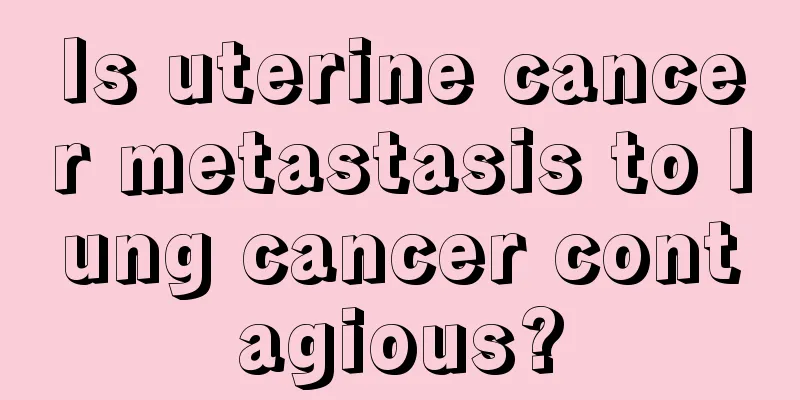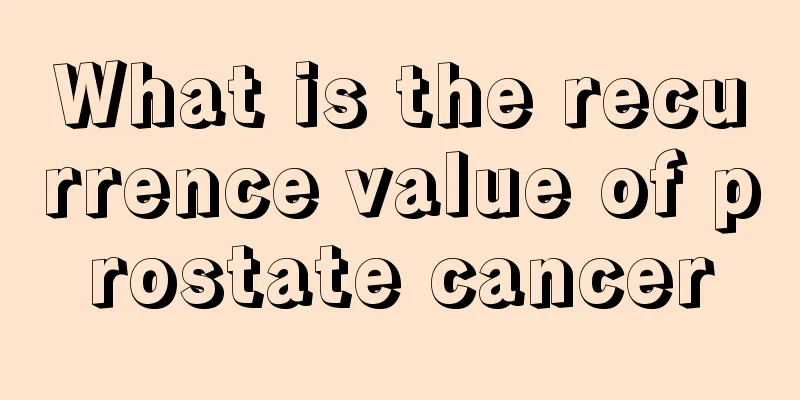What are the reactions after radiotherapy for nasopharyngeal carcinoma and how to deal with them

|
What are the reactions after radiotherapy for nasopharyngeal carcinoma and how to deal with them? 1. Nasopharyngeal carcinoma is one of the most common malignant tumors in my country. It is more common in southern provinces such as Guangdong, Guangxi, Hunan, Fujian, and Jiangxi. The incidence rate in men is 2 to 3 times that in women. The age distribution of reported cases in my country ranges from 3 to 90 years old, but 30 to 50 years old is the high-incidence age group. 2. The best treatment for most cancers is surgery, but nasopharyngeal cancer is different from other cancers. After suffering from nasopharyngeal cancer, doctors generally use radiotherapy to treat it. Radiotherapy is also considered to be the first choice treatment option for nasopharyngeal cancer. 3. The reason why radiotherapy is the best treatment for nasopharyngeal carcinoma is that most nasopharyngeal carcinomas are poorly differentiated squamous cell carcinomas, which are highly malignant and easily invade the surrounding tissues of the nasopharynx and metastasize to the cervical lymph nodes, making them difficult to completely remove by surgery. The nasopharynx is located in the center of the head, is relatively hidden, and is adjacent to important organs, tissues, cranial nerves, blood vessels, etc. The surgical exposure is extremely limited, and the surgery is very likely to damage the surrounding tissues. The risk of surgery is relatively high, and it is even more impossible to perform continuous large-scale resection of the nasopharyngeal tumor and the cervical lymph drainage area. Therefore, the surgical treatment of nasopharyngeal carcinoma alone is not effective. 4. At the same time, since 95% of nasopharyngeal carcinomas are poorly differentiated squamous cell carcinomas, they are highly sensitive to radiation. Radiotherapy can easily include the primary lesions of nasopharyngeal carcinoma and the cervical lymph node drainage area in the irradiation field. The radiotherapy has a good effect, and its short-term effect can reach more than 90%. The overall five-year survival rate after radiotherapy can reach more than 50%, among which the patients in stage I and II are 95% and 78% respectively. The summary of the treatment of recurrent nasopharyngeal carcinoma also shows that re-radiotherapy still has a certain therapeutic value. |
<<: Can stomach cancer be cured
Recommend
What are the early symptoms of brain tumors? How to treat brain tumors?
Many people find brain tumors scary because if a ...
What's the matter with the small fleshy pimple under the armpit?
Although the armpit does not provide any direct h...
Is moderate fasting healthy?
Young people nowadays are busy with their work, e...
What is the use of pubic hair? It turns out that it develops at this age
Pubic hair exists in both men and women and plays...
How is dried tofu made?
Everyone must have eaten dried tofu in the past, ...
Care for wounds that are difficult to suture
In daily life, wounds are inevitable on our bodie...
Who are the people suitable for sea cucumbers
I don’t know if we all have a detailed understand...
How to check thyroid cancer
Once we feel that we have a disease, we must reme...
What are the targeted drugs for kidney cancer
With the development of biological and medical te...
How to use toner
The main function of toner is to adjust the pH va...
What kind of cup is better?
Whether it is hot summer or dry winter, plenty of...
The disadvantages of washing hair frequently
Nowadays, many young people like to wash their ha...
Does black tea have a shelf life?
Dark tea is one of the unique teas in my country,...
"Rolling away" can remove moisture and toxins from the body
Use an egg to remove moisture from your body, it&...
What are the traditional Chinese medicine treatments for ovarian tumors
For ovarian tumors, the combination of Chinese an...









